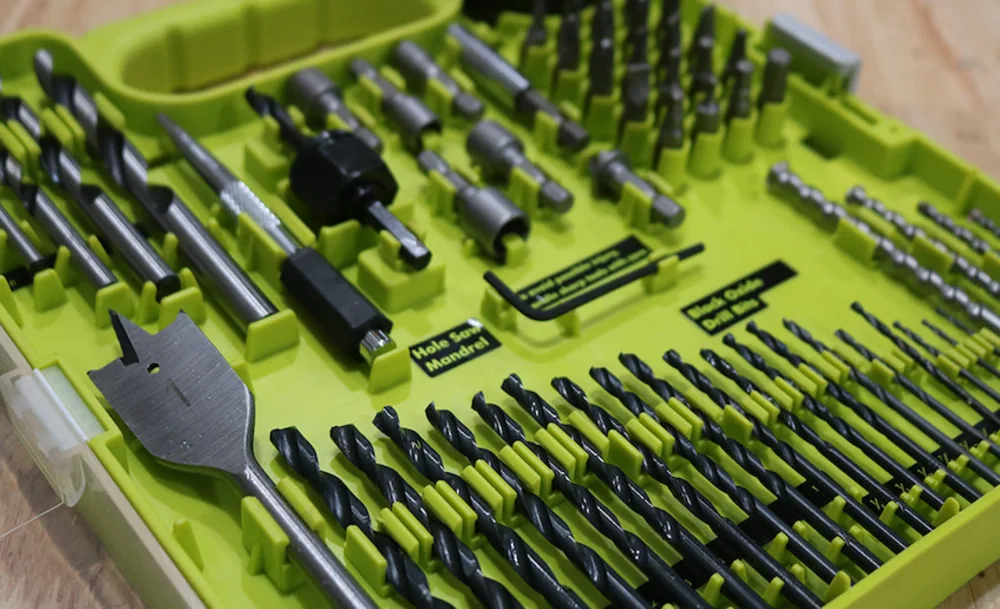Drill bits are essential tools in construction, woodworking, metalworking, and general home improvement. Choosing the right drill bit for the material at hand can greatly impact efficiency, precision, and the longevity of both the bit and the drill itself. This guide provides a detailed look at different types of drill bits, their applications, and key factors to consider when selecting the right one for the job – tokohasil.com.
Understanding Drill Bit Types by Material
1. Wood Drill Bits
Woodworking requires specialized drill bits designed to cut cleanly through softwoods, hardwoods, and engineered wood materials. Common types include:
Brad-Point Bits – Feature a sharp central point for precision drilling and reduced wandering.
Spade Bits – Best for drilling large holes in softwood and plywood quickly.
Auger Bits – Provide deep and smooth holes with minimal effort, ideal for carpentry and furniture making.
Forstner Bits – Designed for drilling precise, flat-bottomed holes in wood.
2. Metal Drill Bits
Metal drilling requires durable bits that can withstand high temperatures and resist wear. Some key options include:
High-Speed Steel (HSS) Bits – Versatile and suitable for most metals, offering a balance of durability and affordability.
Cobalt Bits – Made with cobalt alloy, these bits excel in drilling hard metals such as stainless steel and cast iron.
Carbide-Tipped Bits – Extremely hard and wear-resistant, best for high-volume or industrial metal drilling.
Step Bits – Ideal for drilling progressively larger holes in thin metal sheets.
3. Masonry Drill Bits
Drilling into concrete, brick, or stone requires bits that can handle extreme resistance. Common types include:
Carbide-Tipped Masonry Bits – Designed to penetrate tough masonry surfaces with precision.
SDS Bits – Used with rotary hammer drills, offering superior impact resistance and faster drilling speed in concrete.
Diamond Core Bits – Essential for cutting through reinforced concrete and stone, often used in industrial and professional applications.
4. Multi-Purpose Drill Bits
For those who work with multiple materials, multi-purpose drill bits can provide flexibility and convenience. These bits often feature a carbide tip that allows for effective drilling into wood, metal, plastic, and masonry without changing bits frequently.
Selecting the Right Drill Bit: Key Considerations
When choosing a drill bit, consider the following factors:
Material Compatibility
Always use a drill bit that is specifically designed for the material you are working with. Using an inappropriate bit can result in poor performance, breakage, or damage to the material.
Bit Coating and Durability
lack Oxide – Increases heat resistance and extends the bit’s lifespan.
Titanium-Coated – Offers improved wear resistance and reduced friction for metal drilling.
Cobalt-Alloyed – Provides superior hardness and heat resistance for hard metals.
Diamond-Coated – Best for cutting through glass, tile, and stone.
Bit Size and Shank Type
Standard Round Shank – Compatible with most drills.
Hex Shank – Provides better grip and prevents slipping in drill chucks.
SDS Shank – Used for heavy-duty rotary hammers in masonry drilling.
Speed and Performance
Low-Speed Drilling – Preferred for hard materials like metal and concrete to prevent overheating.
High-Speed Drilling – Works best for soft materials like wood and plastic to achieve a clean cut.
Maintenance Tips for Longer Drill Bit Life
To extend the lifespan of drill bits and ensure optimal performance:
Keep Bits Sharp – Dull bits create excess friction, leading to poor results and faster wear. Use a sharpening tool when needed.
Use Proper Lubrication – When drilling into metal, apply cutting fluid or oil to reduce heat buildup.
Avoid Excessive Force – Let the drill do the work; excessive pressure can cause bits to snap or wear prematurely.
Store Properly – Keep bits organized in a case to prevent damage and corrosion.
Conclusion
Selecting the right drill bit is crucial for achieving professional-quality results in woodworking, metalworking, masonry, and general construction. Understanding the different types of drill bits and their specific applications ensures efficient, precise, and safe drilling operations. By choosing high-quality bits and maintaining them properly, both professionals and DIY enthusiasts can maximize their tool’s performance and longevity.
For premium-quality drill bits tailored to your needs, explore our latest selection designed for durability, precision, and superior performance across all materials.

